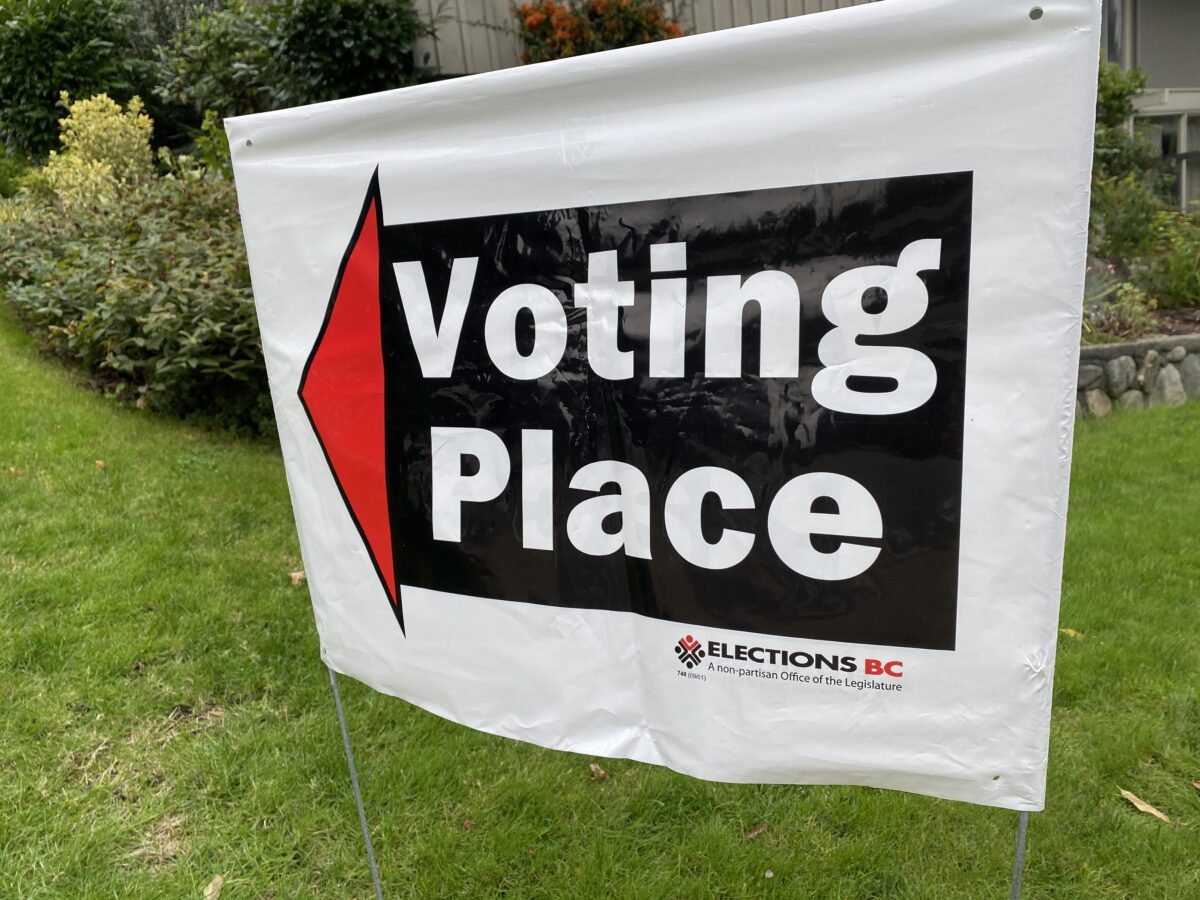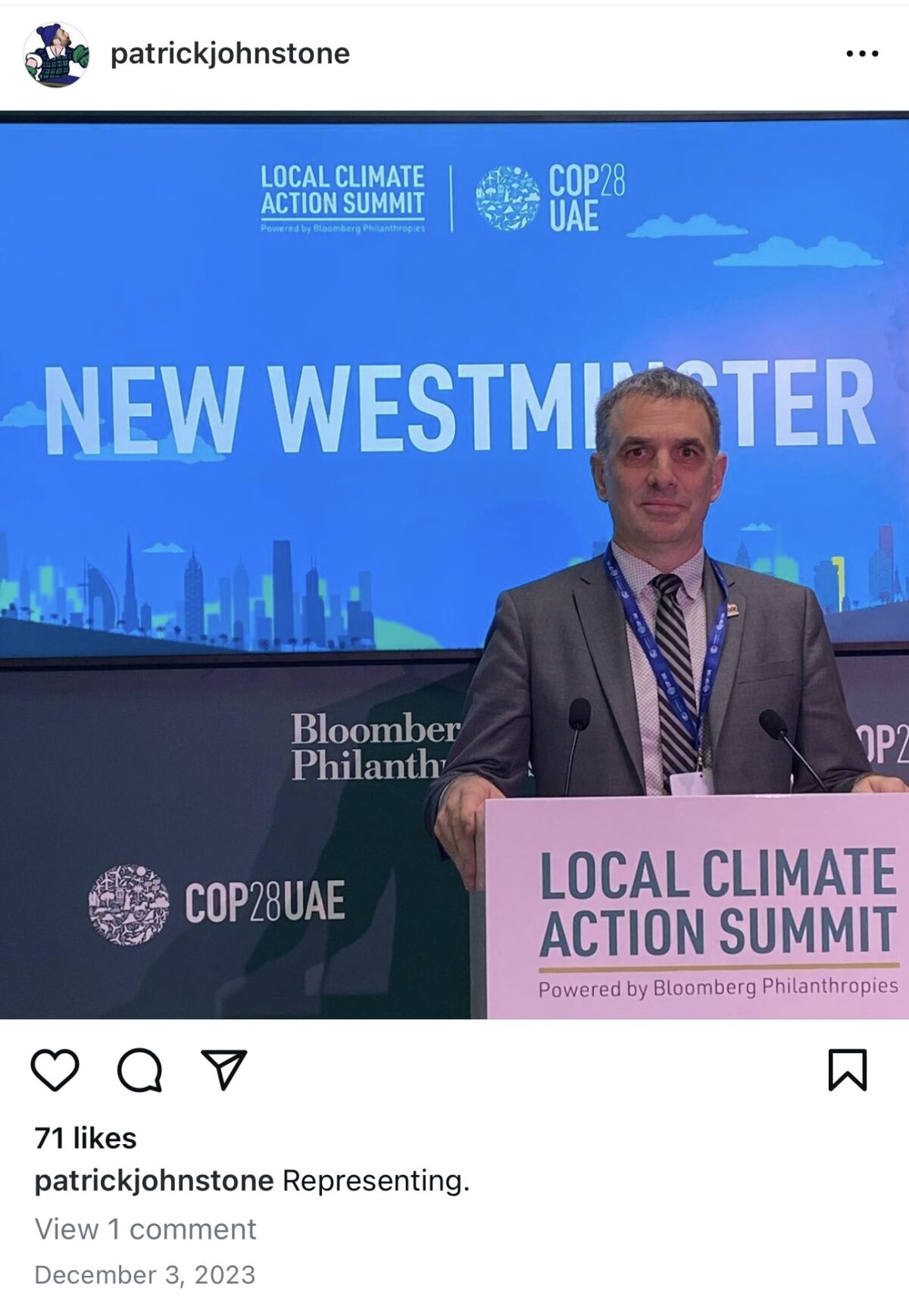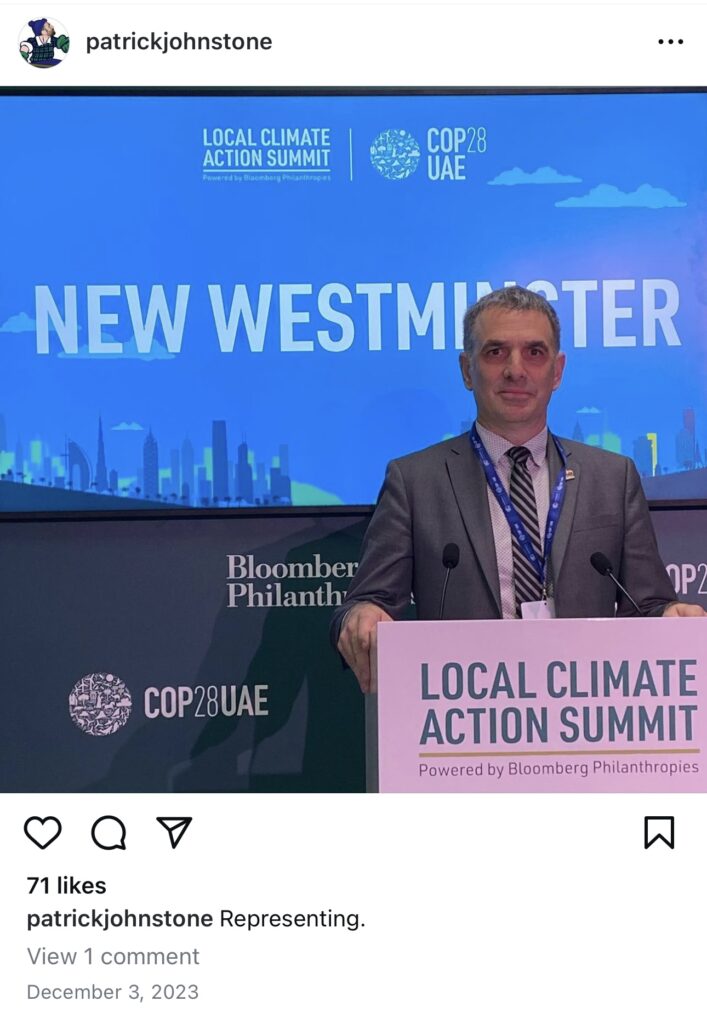Briefly: Document outlined general threats to B.C.’s 2024 election and offered advice to prevent, mitigate harm.
Bob Mackin
Officials feared protesters would violently disrupt British Columbia’s Oct. 19 election.
A document titled “Direct Action Incidents Guidelines and Procedures for Provincial Election Campaigns” was published on the Elections BC website. It was produced by the Policing and Security Branch of the Ministry of Public Safety and Solicitor General, in consultation with various B.C. police forces and Elections BC.
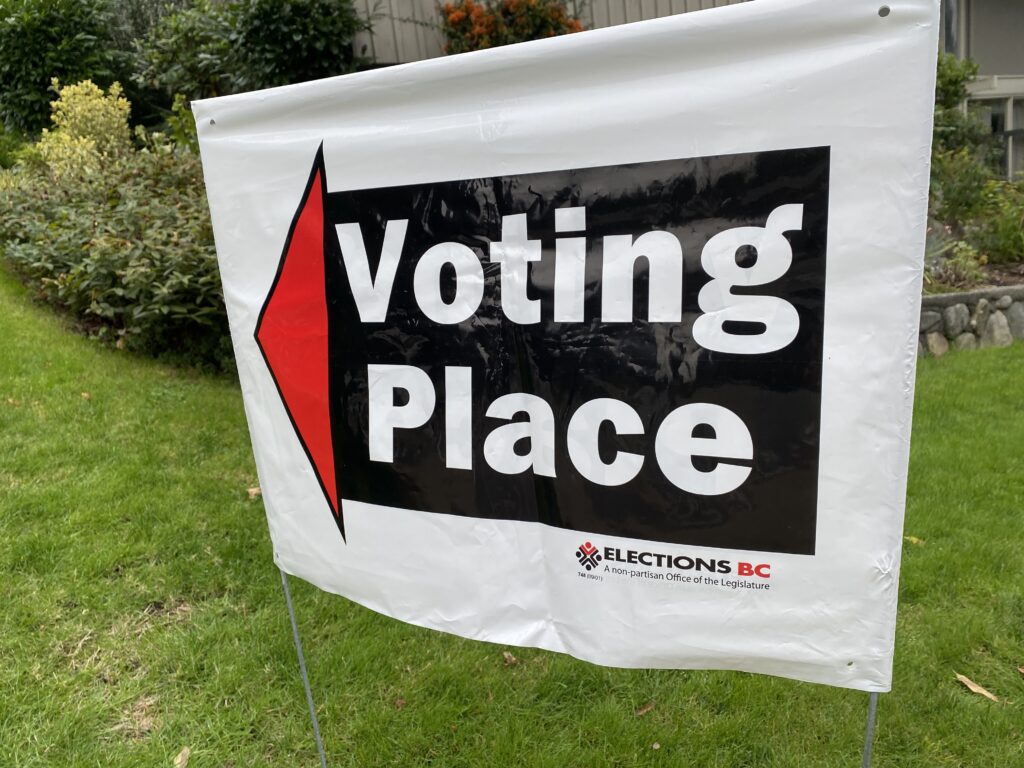
Elections BC sign (Mackin)
The document said demonstrations were a risk to the provincial election, though it did not name specific groups or causes.
“While elections allow members of the public to express their political preferences at the ballot box, direct action refers to taking political action through activities that are outside the formal processes and structures of government,” the document said.
“While most demonstrations proceed in alignment with their political context and remain peaceful in nature, all political candidates and their staff should be aware of the following risks associated with direct action incidents.”
If any serious incidents took place, and if any are under investigation, officials are keeping quiet. B.C. RCMP senior media relations officer S. Sgt. Kris Clark said “your inquiry is best directed to Elections BC.”
A spokesperson for Elections BC said it published the document as a courtesy to the Solicitor General’s office.
“If candidates or parties received threats and notified Elections BC, they were informed to make a report to the local police of jurisdiction,” said Elections BC senior director of communications Andrew Watson. “We do not track the number of notifications we receive of this nature as it is outside of our mandate to respond to them.”
Risks and advice
Risks mentioned in the document included violent demonstrations or counter-demonstrations, vandalism and disruption at a candidate’s personal residence. The guide advised parties and candidates to vigilantly control access and verify identification in order to prevent an office occupation. They were told to have a safety plan in place, with input of local police, and discuss an emergency communication and evacuation plan with co-workers.
The guide also said police endeavour to “identify and connect with protest organizers in advance of planned protests. Their ability to do so varies depending on which groups and/or individuals leading those groups are involved.”
Sometimes a group may use private or encrypted communication channels to finalize event details, frustrating the police response.
In the event of a protest, the guide prioritized attempts to maintain a civil, non-confrontational tone, but recommended avoiding passing through a group of protesters in front of a door or gate. If possible, it suggested demonstrators be advised of the need for employees to maintain normal duties and office operations without disruption.
“Depending on the protocols set out in a pre-established response plan and/or the advice of police, meet with a representative of the demonstrators to determine the demands or objectives of the demonstration.”
The guide also offered advice in case of “online intimidation, insults, racial slurs and/or hate speech” and gave links to resources. It said staff should be briefed on the connection between “online activity/discourse/rhetoric and the mobilization towards direct protest action.”
Protests aplenty
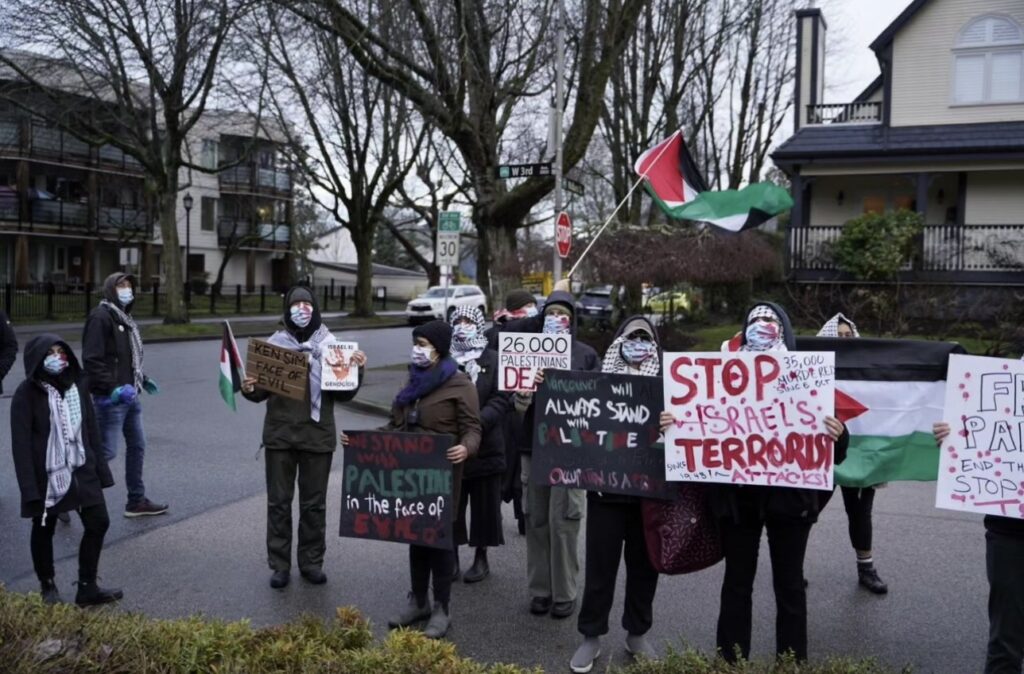
Anti-Israel protesters outside Mayor Ken Sim’s house on Sunday (Instagram/Samidounvan)
B.C. has seen waves of unrest over the last five years, by foreign-funded, radical environmentalists (Extinction Rebellion and Save Old Growth), proponents of the Chinese Communist Party, groups against Israel and India, and opponents of COVID-19 vaccination mandates and the teaching of sexual orientation and gender identity (SOGI) lessons in schools.
Police have responded to highway and bridge blockades, marches around hospitals and schools, and occupations at the local offices of federal and provincial lawmakers and municipal council meetings. Charlotte Kates, international director of pro-Hamas Samidoun, was among the anti-Israel protest mob that surrounded Prime Minister Justin Trudeau and chased him out of Vij’s restaurant in Vancouver on Nov. 14, 2023.
Protesters involved with Samidoun also descended on Vancouver Mayor Ken Sim’s residential property on the last Sunday of January. Samidoun was a driving force behind the ousting of Jewish minister Selina Robinson from the B.C. NDP cabinet in February. During Hallowe’en, a vandal spray-painted insults directed at Sim and his family, in English and Chinese, across his garage door. The graffiti also included “Free Palestine.”
On Oct. 15, federal authorities in Canada and the U.S. declared Samidoun, an affiliate of the Popular Front for the Liberation of Palestine, a banned terrorist entity.
Meanwhile, in Washington State and Oregon, where elections are conducted by mail, the FBI is investigating two arson attacks at ballot drop boxes in Portland and Vancouver, Wash. ahead of the Nov. 5 elections. The New York Times reported devices police found at the crime scenes contained the words “Free Gaza.”
In B.C., elections are still held primarily in-person.
theBreaker.news reported that, during the Oct. 10-16 week of advanced voting, polling station supervisors were allowed to take unused ballots, sealed ballot boxes and other important documents home each night for safe-keeping, if they were unable to store them at the local Elections BC district office.
Elections BC deemed the risk of transport and overnight storage in a private home less than the risk of leaving materials unattended in a temporary polling station. Watson said that cast ballots were secured in a ballot box that was sealed and signed by election officials and scrutineers.
Watson emphasized that staff swore an oath to uphold the Election Act. Anyone caught and convicted of tampering with ballots and other election materials faces a fine up to $10,000, a year in jail or both.
NEW: Subscribe to theBreaker.news on Substack. Find out how: Click here.
Briefly: Document outlined general threats to B.C.'s











